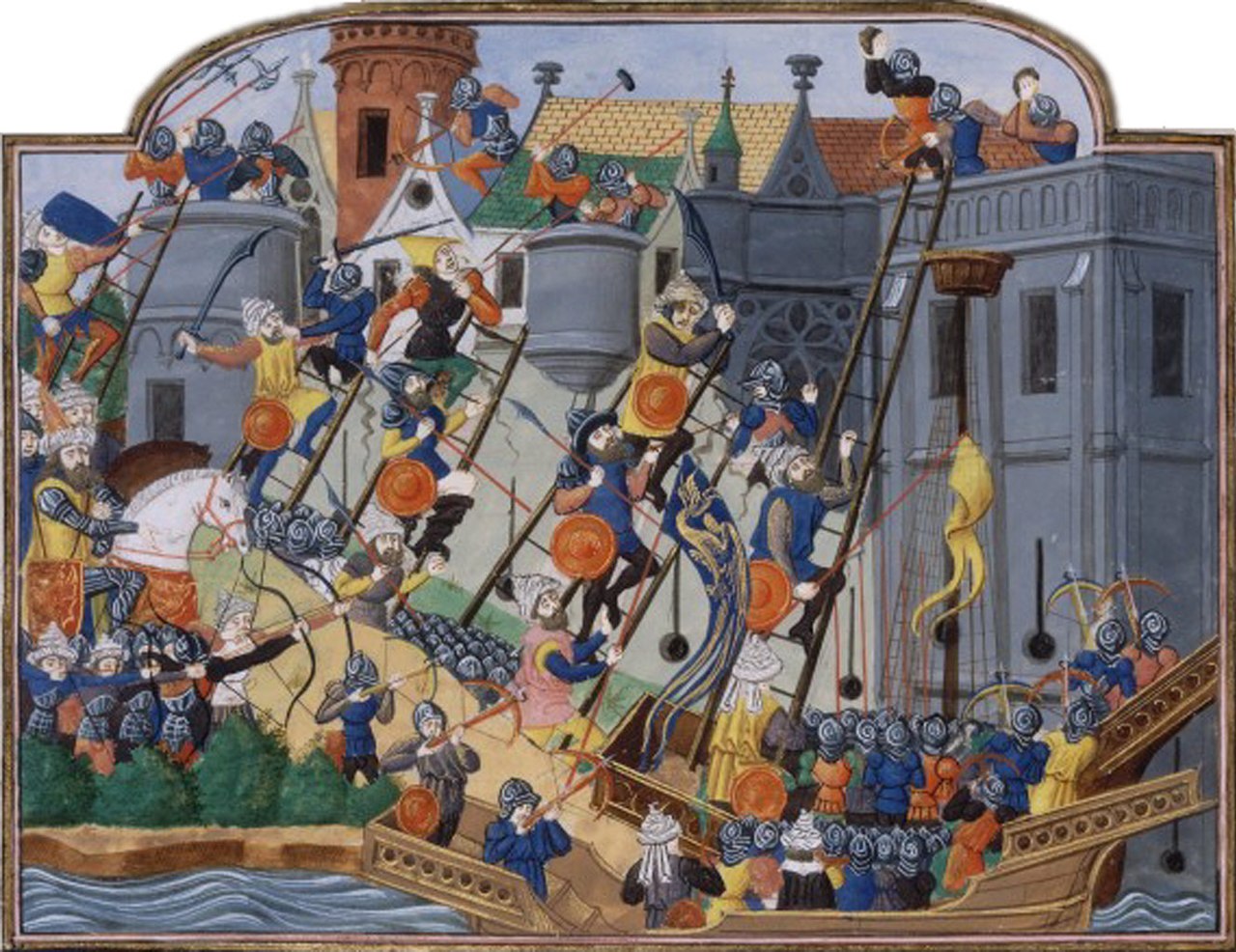On May 29th, 1453, the great city of Constantinople, which stood for over 100 years, assaulted by the Arabs and Turks for most of that time, finally fell. When the Roman Church moved to Byzantium in 330 with the power and wealth of the Constantine empire, they brought all the books with them, mostly written in the original Greek. With the fall of Constantinople, the Roman Empire ended.

The scholars of Constantinople fled, and took their books with them. They arrived in Southern Italy, and their arrival was a Big Deal. Cosimo deMedici, wealthy banker in Florence, bought many of the books and began hiring translators. He loved books, and as the biographical entry in Wikipedia states, bought entire libraries to stock his own, using 45 copyists:
Cosimo had grown up with only three books, but by the time he was thirty, his collection had grown to 70 volumes. After being introduced to humanism by a group of literati who had asked for his help in preserving books, he grew to love the movement and gladly sponsored the effort to renew Greek and Roman civilization through literature, for which book collecting was a central activity. "Heartened by the romantic wanderlust of a true bibliophile, the austere banker even embarked on several journeys in the hunt for books, while guaranteeing just about any undertaking that involved books. He financed trips to nearly every European town as well as to Syria, Egypt, and Greece organized by Poggio Bracciolini, his chief book scout."[34] He engaged 45 copyists under the bookseller Vespasiano da Bisticci to transcribe manuscripts and paid off the debts of Niccolò de' Niccoli after his death in exchange for control over his collection of some 800 manuscripts valued at around 6,000 florins.[35] These manuscripts that Cosimo acquired from Niccoli would later be the cornerstone of the Laurentian Library, a library in Florence founded by Cosimo's grandson, Lorenzo de' Medici.
Wikipedia: Cosimo de Medici
Cosimo had already established a Platonic Academy in 1445, "powered," as it were, by the books coming into Europe via the Arabic, and later, Latin translation movements. Thus, the Renaissance ("the Renewing") was already taking place.
And then the Constantinople scholars arrived with the original Greek volumes. Cosimo went ape. He told his copyists, those who could learn Greek, to drop what they were doing, and translate. The most prolific were Marsillio Ficino, and Lodovico Lazzarelli. These new old copies of the originals were a huge boost to the Renaissance, and introduced many ideas of the original Alexandrian/Gnostic alchemies into Europe. This brand of Renaissance alchemy was highly associated with astrology and magic, so the Italian alchemy has astrology and magic as part of the practice. Like most Italian scientists, Galileo was an astrologer, and gave horoscopes to family, friends, and even in the preface to his books. As Brent Swancer put it back in December 2021:
It may seem pretty strange that the father of modern astronomy and such a groundbreaking frontiersman of science as Galileo should be into horoscopes, but back in Galileo’s time it actually was not all that strange that mathematicians and astronomers should believe in astrology. For centuries astrology was a discipline intrinsically tied to the studies of mathematics and astronomy, being taught right alongside them at the finest Italian universities. Indeed, Galileo, like Ptolemy and Kepler before him, held a position known as a mathematicus, a term which had a threefold meaning as referring to mathematics, astronomy, and astrology. Indeed, at the time one of the reasons for studying the movement of planets relative to the stars to begin with was for the purpose of predicting their positions and pinpointing their relation to each other in order to make oracular predictions or fashion horoscopes. At the time it was not uncommon for medical students to be taught astrology in order to cast horoscopes to predict the onset of a disease and indicate the appropriate remedy, and this kind of medical astrology was not all that unusual for the era.
The Church worked hard to stamp out the magic, and alchemy was in part caught up in the net. But the astrology didn't die until after Aristotle was displaced in the late 1600's.
The most important alchemy works were those of Hermes Trismegistus, and in Renaissance Italy is perhaps when his fame was trumpeted loudest. Ficino's translation, which he titled Pimander, after the character in the first book, was the first thing he translated. It's a good translation into Italian, too.